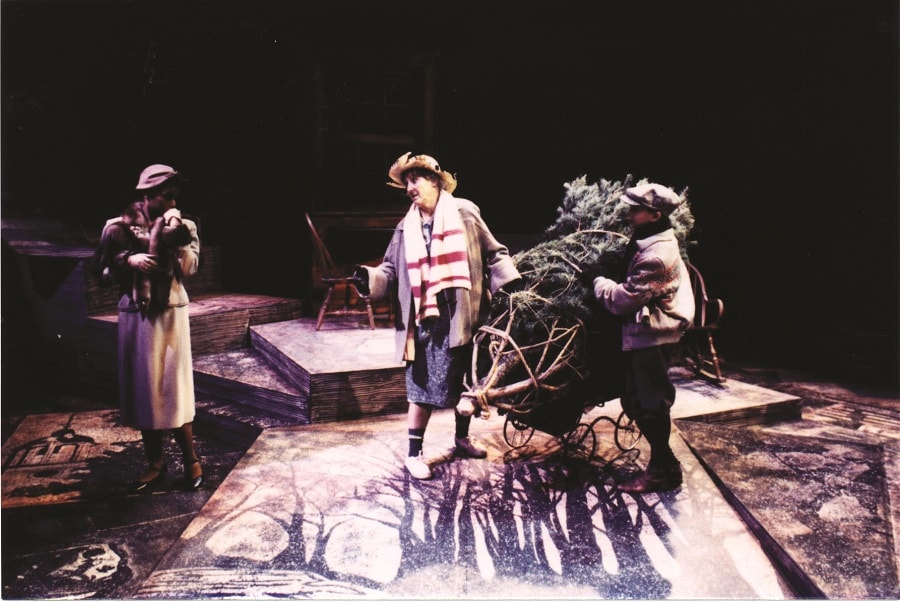Russell Vandenbroucke was surprised to learn that artistic director Susan Booth of Atlanta’s Alliance Theatre considered him her mentor. Their relationship sprang up informally in the early 1990s when Booth was Vandenbroucke’s student at Northwestern University. During his tenure as artistic director of Chicago’s Northlight Theatre, Booth joined that theatre’s staff as a fellow, eventually becoming the associate artistic director. Although Booth left Northlight to join the artistic staff of the Goodman Theatre and eventually helm the Alliance, her artistic leadership style was greatly influenced by Vandenbroucke.
BOOTH: I knew early on that being an artistic director was what I wanted to do. One of the things that Russell afforded me was the ability to work in just about any area. The deal was, if you can do it and do it well, you can do it. A simple idea, but not in common practice.
VANDENBROUKE: That’s a good lesson, true of any door that cracks open. Once you get your nose in it, or your foot, whatever appendage you choose to stick in it—then it’s what you make of it.
BOOTH: There are people in leadership positions whose egos are not always intact enough to look at somebody and say, “Wow, you’re really good at what you do—let me give you an opportunity because it will benefit me.” One of the direct applications of that way of thinking is that now I surround myself with people who are really, really good at what they do.
VANDENBROUKE: We learn how to be parents from our parents, teachers from our teachers. I learned from Robert Brustein and Gordon Davidson—you learn positive things and negative things.
BOOTH: There is a way of thinking horizontally as well as vertically about an institution that was a particular way Russell did his job: everything affecting something else. An awareness of how what you do resonates with the field.
One of things that I really appreciated—probably not adequately at the time—was that I had access to Northlight’s board. I sat in on marketing, development meetings. My tenure there was about learning the theatre through a very global set of eyes—not just learning a compartment. And you never thought of yourself as divorced from the administration of the theatre.
VANDENBROUKE: No, because I felt responsible for everything. I saw no boundaries on what mattered or was important.
BOOTH: We went to a Cubs game as a staff outing, and Russell took the L with a big Northlight sign tucked under his arm. And I thought: Here’s the artistic director, not the marketing director, not some poor intern, carrying this big-ass sign down to the Cubs game, so that we would catch the attention of the press.
VANDENBROUKE: Mentoring isn’t just about people but a context that one is in. We were a LORT D theatre, a small (to say struggling is redundant) theatre. So Susan easily made strong working relationships with people in other departments.
BOOTH: One of the hallmarks of our relationship was the willingness to give and be given shit. It didn’t matter that Russ, the guy, and Susan, the girl, gave each other shit. There was never any limitation on anything because of gender. It was a meritocracy.
VANDENBROUKE: Ours is a medieval enterprise. Electricity and light boards and sewing machines notwithstanding, it’s very medieval—thus the idea of craft and apprentices.
BOOTH: I didn’t feel like a little grasshopper. I was being taught, but I was also being asked, and my opinions were being heard. So the lessons felt much more Socratic, and that made a big difference.
Michele Pearce is co-producing artistic director for Synchronicity Performance Group in Atlanta.


